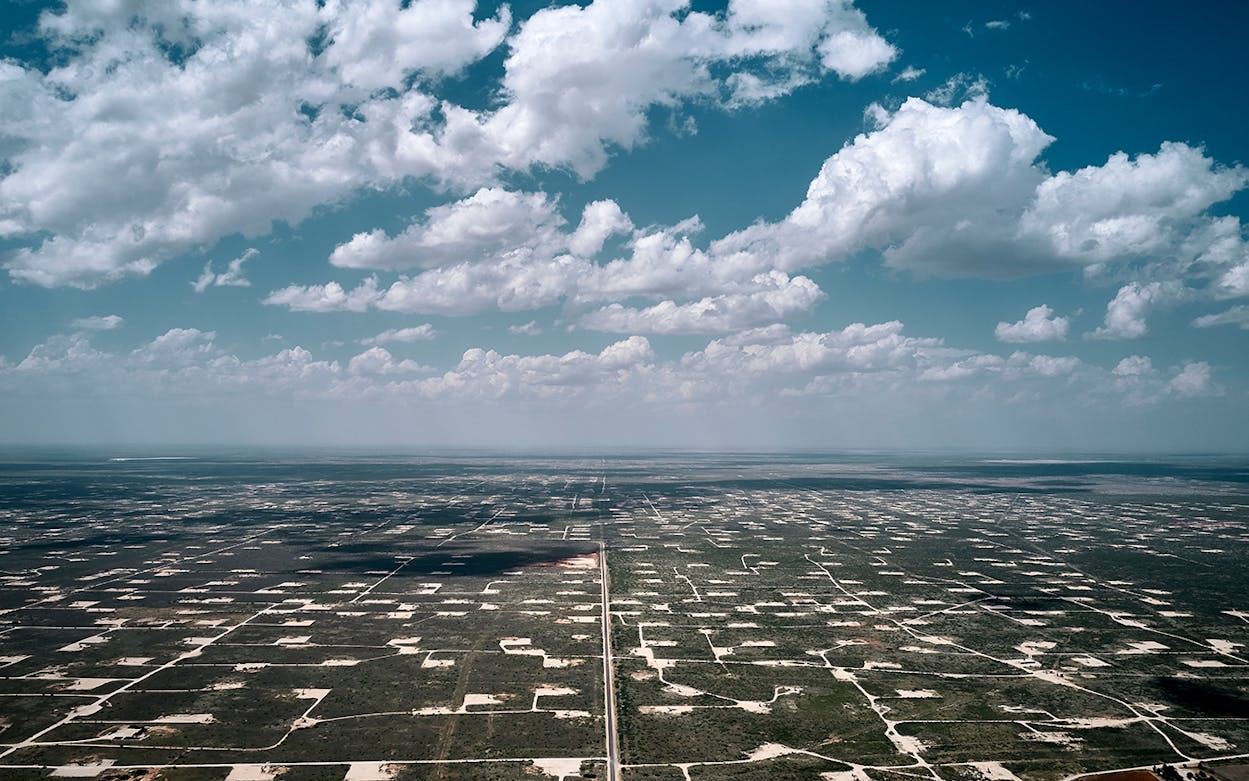George P. Mitchell was a Texas wildcatter—but not the swaggering kind. He was quiet and bookish, just as fascinated by deep space as he was knowledgeable about rock formations deep within the earth. Though he didn’t fit the popular stereotype, one could argue that no oilman since John D. Rockefeller has played a bigger role in shaping American society.
Today, Mitchell is best known as “the father of fracking.” For seventeen years, Mitchell’s company doggedly worked to find an effective and economical way to use hydraulic fracturing to access natural gas trapped in tight shale formations. An engineer at Mitchell Energy finally cracked the code in 1998, providing drillers the formula needed to tap into the vast reserves of oil and natural gas that had previously been inaccessible. Since then, fracking (combined with horizontal drilling) has completely changed the energy landscape. Production has surged to record levels, making America the biggest producer of oil and natural gas in the world.
Fracking is also the driving force behind the boom playing out right now in the Permian Basin. Many community leaders in the region, including Midland’s new mayor, Patrick Payton, are quick to invoke Mitchell’s name when they talk about the visionary leadership needed to address the challenges brought on by this historic boom. But those who knew or have studied Mitchell say that he had a complicated relationship with the technology he helped to create.
To better understand the complexities of Mitchell’s legacy, we spoke with business journalist Loren Steffy, who recently published a biography called “George P. Mitchell: Fracking, Sustainability, and an Unorthodox Quest to Save the Planet.” Loren helps guide us through Mitchell’s life, from his early childhood in Galveston to his Aggie days at Texas A&M to his rise in oil and gas and the sale of his company for three billion dollars.
Mitchell’s interests went far beyond oil and gas. He cared deeply about sustainability issues. In the sixties, he was a regular at the Aspen Institute, a gathering for the world’s wealthy and powerful to debate the world’s biggest problems. He became friends with futurist Buckminster Fuller, astrophysicist Stephen Hawking, and President Jimmy Carter. For years, he sank the profits from his energy company into the Woodlands, the Houston suburb he hoped would become a model for sustainable communities around the globe. But since the shale boom took off, the environmental concerns of fracking have overshadowed this aspect of Mitchell’s legacy.
The seeming contradictions that marked Mitchell’s life could be perplexing, even to his family. It was his son, Todd, who coined the phrase “the Mitchell Paradox.” We discuss that paradox with one of Mitchell’s ten children, Meredith Dreiss, who lives part time in Marfa and has watched the boom unfold in West Texas. She also ran the family’s grant-making organization, the Cynthia and George Mitchell Foundation, for two decades. We speak, too, with Katherine Lorenz, Mitchell’s granddaughter, who has served as president of the foundation since 2011.
And finally, we turn to Russell Gold, a senior energy reporter at the Wall Street Journal and the author of two books, including The Boom: How Fracking Ignited the American Energy Revolution and Changed the World. Russell met Mitchell a few years before Mitchell died in 2013. At the time, Mitchell was living in the Tremont Hotel in Galveston, where he held court in the lobby with governors and whoever interesting might pass by. Russell talked with Mitchell about his legacy. Some aspects Mitchell was eager to talk about—others, not so much. “There were just complexities to his life,” Russell said, “that, at the end of the day, you couldn’t resolve.”
Editor’s note: This episode was made with assistance from Marfa Public Radio’s Mitch Borden, who helped report and cowrote the script.








